|
If you’re at the beginning stages of your writing career, you’ll still be navigating your way through the world of publishing. And you probably have a ton of questions. One of those will likely be: What kind of editor do I need to help me get my book ready? The natural follow-up to that is: How do I find that person?
I offered guidance on what kind of editor to hire and when in ‘The different levels of editing. Proofreading and beyond’. Today, I’m focusing on how you should source that person.
So as not to muddy the waters, I’m assuming you’ve already decided what kind of help you want: developmental, copy/line editing or final prepublication proofreading. If you’re still not sure, I’ve included a PDF that summarizes the different levels of editing at the bottom of this article. Now let’s look at how to find the right person. My recommendations fall into two categories:
Search (1): Professional associations
Your national editorial society is a great place to start, for four reasons:
Being able to target your search means higher-quality results for less of your valuable time. Woo hoo! The UK’s professional editorial association is the Chartered Institute of Editing and Proofreading (CIEP) and there’s a global list here: Professional societies and associations. A limitation of national professional editorial societies is that they’re national. There’s absolutely no reason why you should source editorial help from someone in your own backyard. Many editorial pros work with clients from all over the world. Search (2): The internet The internet is the biggest and most amazing directory on the planet so it’s a brilliant place to search. Your perfect-fit editorial pro is out there, just waiting for you to touch base. There’s a problem, though: the internet is the biggest and most amazing directory on the planet so it’s a terrible place to search. Your perfect-fit editorial pro is buried, waiting for you to dig her out. Go too broad with your keywords and you might miss her. Go too narrow and … yep, you might miss her. Of course, you might find her, too. As Google sometimes prompts us: are you feeling lucky? And there’s something else to bear in mind – and I say this as someone with page-one Google rankings for the term ‘proofreader’, so it’s not a case of sour grapes – being high up in Google doesn’t mean the proofreader or editor is necessarily the best fit for you; it means they’re an effective marketer. And, conversely, just because someone’s website is ranked highly for niche long-tail keyword searches doesn’t mean that another person who didn’t pepper their website with those particular terms isn’t worth considering, too. That means you need to do a lot of Google legwork to find the best fit and to get a really good batch of potential people to work with. I’m not saying don’t use the internet. Its global nature is an appealing feature, one that the national editorial societies can’t compete with. I’m saying recognize its limitations. It’s amazing but it’s crowded, so you’ll need to invest some time to make it work for you. And that’s why I’ve given professional associations the number-one slot in this list of search options. Search (3): Your network If you’ve developed a solid network of fellow writers, that could be a super resource from which to get recommendations. Bear in mind, however, that the best fit for your writer pal is not necessarily the best fit for you. It’s a small resource given the size of the decision. You might be writing in a different genre, or you might need help with a different level of editing. Some professional editors specialize in one or two levels (e.g. proofreading and copyediting; or developmental editing and manuscript evaluation). Others offer all of the levels but still feel most comfortable in one or two. So tap your network for advice, but back it up with other searches. Search (4): Social media Social media platforms can be useful. They’re global but they have their limitations:
Again, back up with other searches. Here's a summary of the tools you might use to search for an editor or proofreader:
Now let’s take a look at how you might refine your initial searches.
You’ve found 37 developmental editors or copyeditors or proofreaders … whatever you need. All of them look great – they all have experience; can spell properly; are well educated and professional; and have a keen eye for detail and the appropriate training and qualifications. How are you going to narrow that down to something manageable? Refine (1): Genre experience One way is to look at their portfolios, which tell you whether they’re used to working with books in your genre.
A portfolio does not an editor make, and it shouldn’t be the sole determiner of whom you choose by any means. It will, though, give you a feel for who’s used to working with writing like yours. Refine (2): Best versus best fit – samples Best versus best fit is worth considering when it comes to choosing third-party editorial help. At proofreading stage, you need precision; it’s all about quality control. At the earlier stages of editing (e.g. copy/line) emotional engagement will come into play. It’s therefore a good idea to ask for a sample (either free or paid for). A sample will allow you to see who ‘gets’ your writing. Sentence-level tweaking is subjective to a degree (when it comes to suggesting minor recasts, for example) and it may be that five editors all spot the same typos and grammar errors but handle the wordiness rather differently. It’s not about right or wrong, but rather about responsiveness. Refine (3): Endorsements A third narrowing-down technique is to look at what other writers say about a proofreader or editor. Take a look at their testimonials. Have other writers been prepared to publicly endorse the editorial pro? Have mainstream publishers stuck their necks out and praised the work? Testimonials aren’t a foolproof way of determining excellence; like portfolios, they give you a glimpse of what the editors have done, whom they’ve worked with and the impressions they’ve made. They’re just one way of evaluating what’s on offer. So that’s it – a potted guide to finding a proofreader, copyeditor or developmental editor. I wish you luck with your search and with your writing journey! Here’s the information on the different levels of editing I promised. Just click on the image to download.
Louise Harnby is a line editor, copyeditor and proofreader who specializes in working with independent authors of commercial fiction, particularly crime, thriller and mystery writers.
She is an Advanced Professional Member of the Chartered Institute of Editing and Proofreading (CIEP), a member of ACES, a Partner Member of The Alliance of Independent Authors (ALLi), and co-hosts The Editing Podcast. Visit her business website at Louise Harnby | Fiction Editor & Proofreader, say hello on Twitter at @LouiseHarnby, connect via Facebook and LinkedIn, and check out her books and courses.
5 Comments
Louise Harnby
23/5/2017 09:47:27 am
Thanks, Cem!
Reply
12/1/2019 09:43:45 pm
I arrived at the Proofreader's Parlour by accident. Like most who start to write I had little idea of the journey but, reasoning that it cost nothing but time, I wrote.
Reply
18/12/2020 04:47:02 pm
Thanks for explaining why genre experience is helpful when choosing a copy editor. My sister is looking for a good copy editing service to work with. I'll share these tips to help her choose one!
Reply
Leave a Reply. |
BLOG ALERTSIf you'd like me to email you when a new blog post is available, sign up for blog alerts!
TESTIMONIALSDare Rogers'Louise uses her expertise to hone a story until it's razor sharp, while still allowing the author’s voice to remain dominant.'Jeff Carson'I wholeheartedly recommend her services ... Just don’t hire her when I need her.'J B Turner'Sincere thanks for a beautiful and elegant piece of work. First class.'Ayshe Gemedzhy'What makes her stand out and shine is her ability to immerse herself in your story.'Salt Publishing'A million thanks – your mark-up is perfect, as always.'CATEGORIES
All
ARCHIVES
July 2024
|
|
|
|


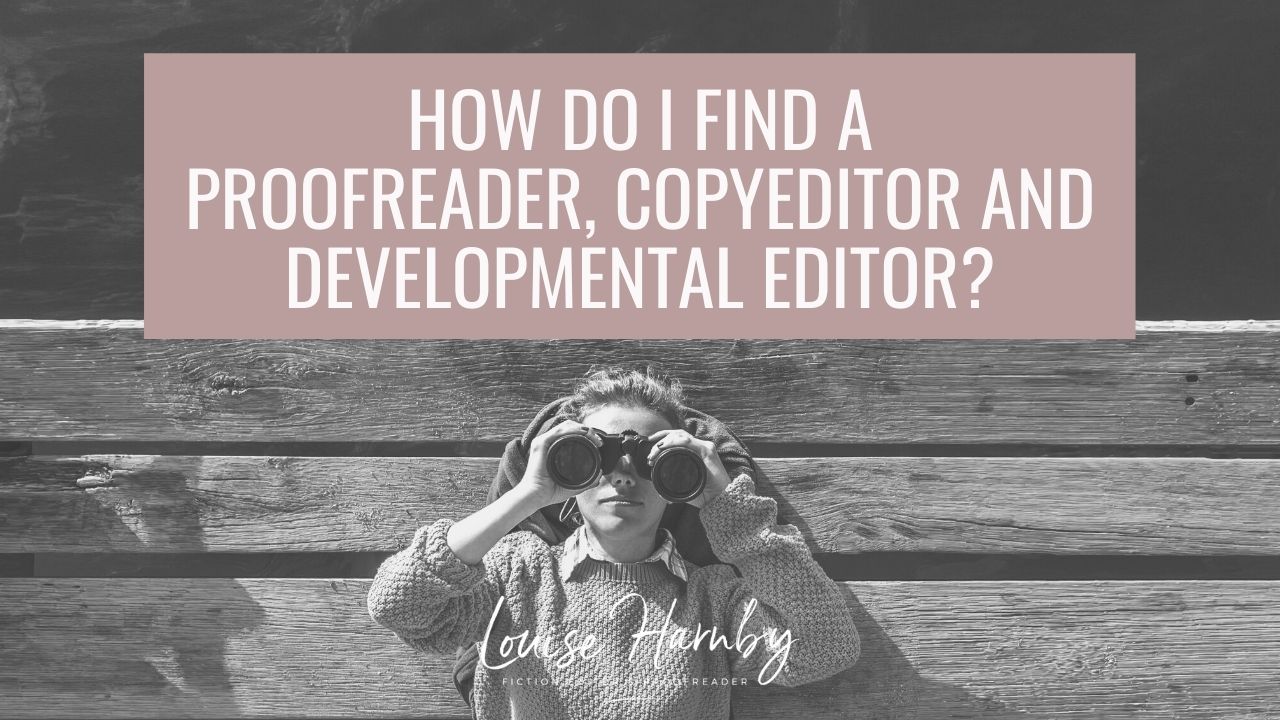
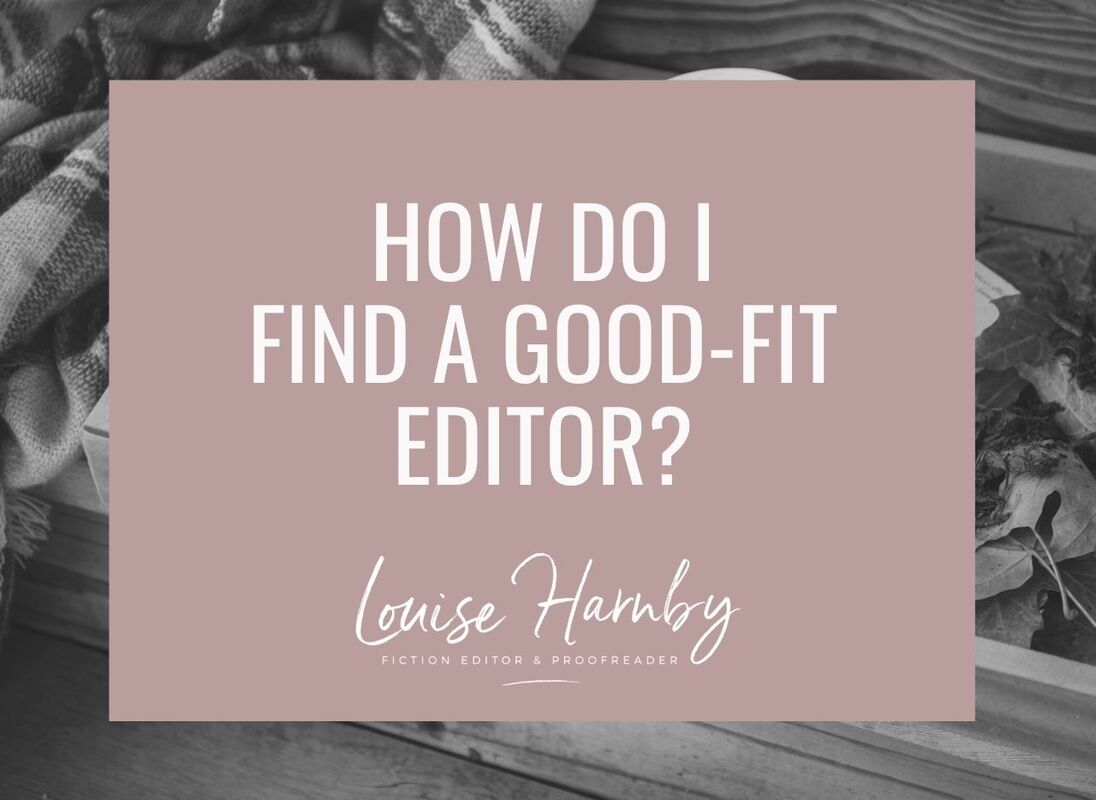
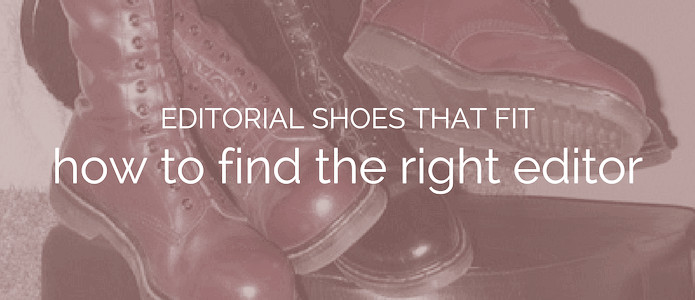
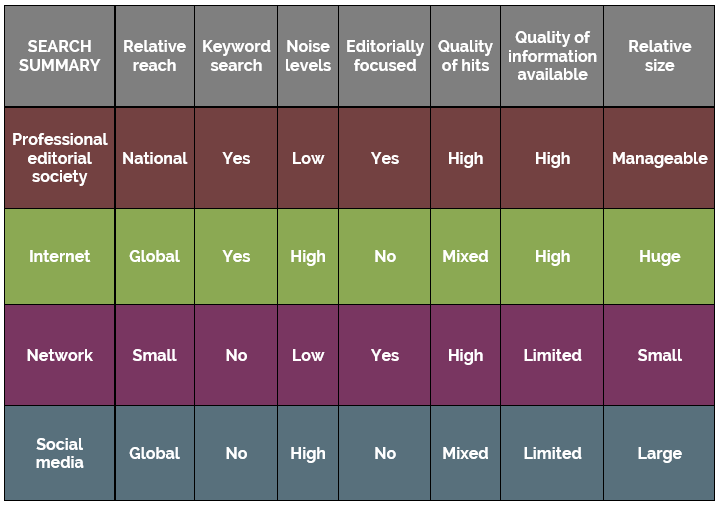
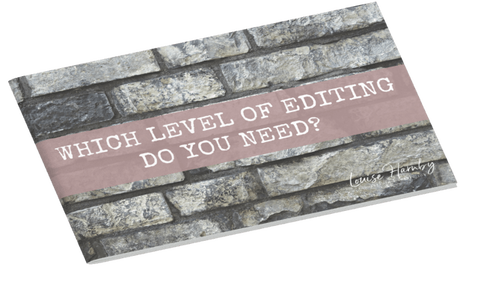













 RSS Feed
RSS Feed





